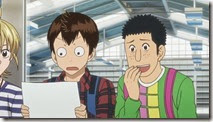 |
 |
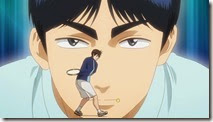 |
More tantalizing glimpses into the future, both for the audience and the protagonist.
There are more similarities between tennis and boxing than most fans realize, above and beyond the fact that it’s a one-on-one battle with no help from teammates or substitutes. Most relevant to this episode of Baby Steps is that matchups are a crucial factor in both sports – both in terms of a specific player’s chances to win, and in the entertainment value the match is likely to provide the audience. Even when Roger Federer was the dominant player in the world against everyone else, he struggled mightily against Rafael Nadal – after a couple of early wins against Nadal at Wimbledon Federer has never been able to best his rival in a grand slam, even when conditions (both of the court and their bodies) favored him. For a myriad of reasons both strategic and psychological Nadal is simply a nightmare matchup for Federer.
One of the most fascinating matchups in either sport is likely to be when two combatants of very similar style and makeup meet. Those matches can sometimes be clunkers, but they can also be riveting as each tries to find a way to overcome the man in the mirror. Remember the first thing Nabae-kun said when he saw Maruo-kun – “Notes? A kindred spirit?” Indeed, both boys saw something immediately – there was a connection between them, a broad similarity in their philosophy of tennis and life. Maruo immediately took Nabae’s success as encouragement – someone who approached the game in roughly the same way he did could advance all the way to the top of the junior ranks, so why couldn’t he do it too?
Of course, this being fiction as fate would have it Ei-chan draws Nabae in the first round of the Kanto Qualifier for the All-Japan Junior – the “Spring Koushien of tennis”, as Miura-kantoku calls it. Why? Because if the All-Japan is Summer Koushien – an event for qualifying schools winning regional preliminaries – the Kanto is an invitation-only event, like the Spring Koushien. And Ei-chan sneaks his way into the field, largely on the strength of his win in the STC Cup. Having done so by the skin of his teeth it’s no shock that Ei-chan draws the top seed in the first round (indeed, Yukichi-kun likewise barely makes it and draws the second seed) and Miura tries to tell his charge that he’s lucky to draw someone he’d need to beat sooner or later anyway in the first round, before he’s sharp. But with a top-8 finish required to qualify for the All-Japan, Ei-chan doesn’t feel so lucky.
The only more dramatic opponent Ei-chan could have drawn in the first round is probably Takuma, but that’s no longer a possibility as Takuma – a year older than Ei-chan and Nat-chan – is playing in satellite pro events in order to build his ranking. That means they never played in an official junior match, and when Ei-chan begs Takuma to take him on one last time in an all-out match, Takuma refuses. He’s still some use to Ei-chan, though – Miura shows his loss to Nabae in last year’s All-Japan to Ei-chan (much to Takuma’s disgust) and Ei-chan sees someone very different than the cautious and deliberate Nabae-kun his saw win his first-round match a few months earlier when they met. Nabae is constantly attacking, aggressive from the first ball – in fact, mimicking the style of Ike Souji, who always had Takuma’s number. Matchups, again.
As is plain by now Maruo is a very smart boy, and he realizes that this is essentially the same kind of player he is, or at least is trying to be – someone who can adapt their style to the opponent, an “All-A” player. The problem for Maruo is that in looking at Nabae he’s not really seeing his reflection, but himself a year from now – someone who’s had a lot more time and experience to hone that style to its current fine sharpness. The peril in this is obvious, and defies any easy fixes – all Maruo can really do is try and find a way to confound Nabae’s expectations and keep him guessing for as long as possible. And that means doing to Nabae what Nabae did to Takuma – being aggressive from the first ball and trying to step on Nabae’s head before he has a chance to find his footing.
This is really a fascinating chess match to watch play out, and among the interested parties (manga readers may collectively sigh at what might have been now) are the third-seed Ide Yoshiaki (Kenn – I totally buy that casting) and fourth-seed Okada Takayuki (Kentarou Itou). Ei-chan’s new body doesn’t betray him – in fact, as Miura-kantoku points out, at long last Ei-chan’s body can keep up with his eyes and his mind. He jumps on Nabae immediately, but recognizes the urgency of the matter because he knows Nabae is doing exactly what he’d be doing – collecting data on the opponent with every point. And once that data is collected, Maruo will be facing an opponent who’s had a tennis lifetime perfecting the art of using data to its best advantage, something he’s been doing for little more than a year.
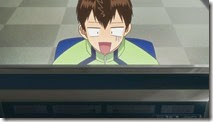 |
 |
 |
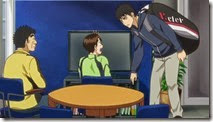 |
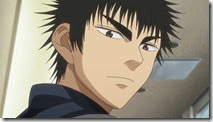 |
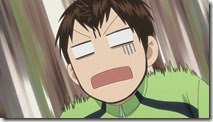 |
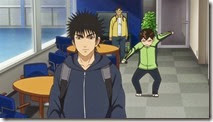 |
 |
 |
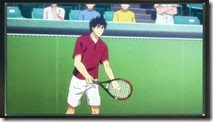 |
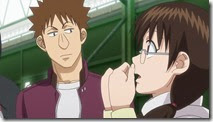 |
 |
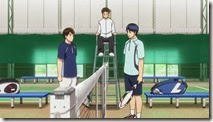 |
 |
 |
 |
 |
 |
 |
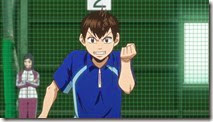 |
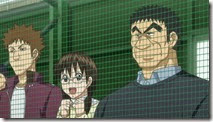 |
 |
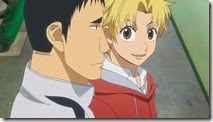 |
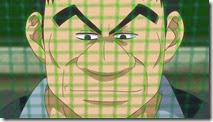 |
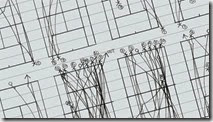 |
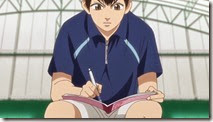 |
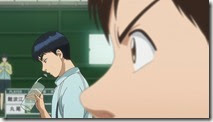 |
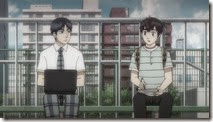 |
 |
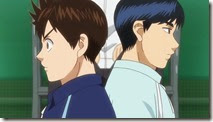 |


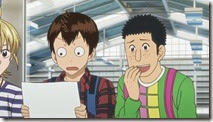
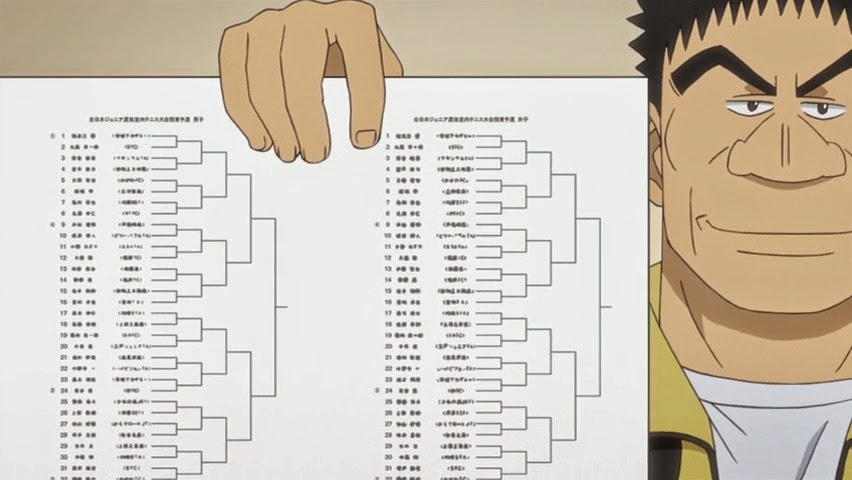
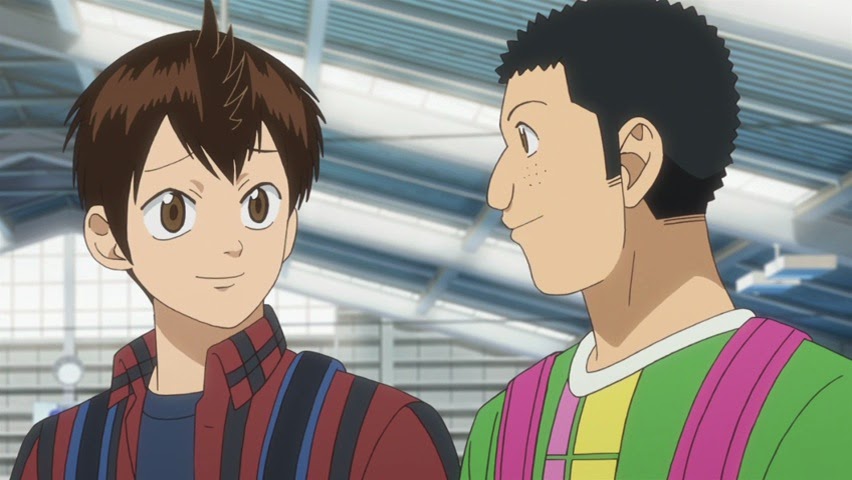
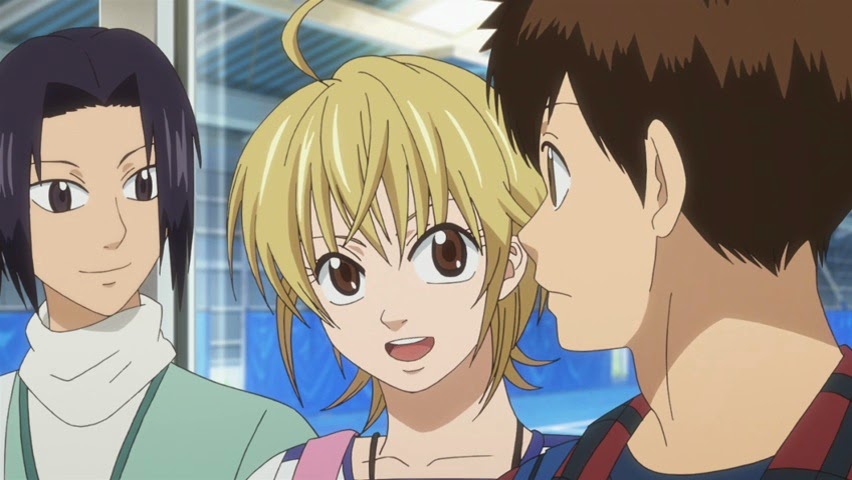
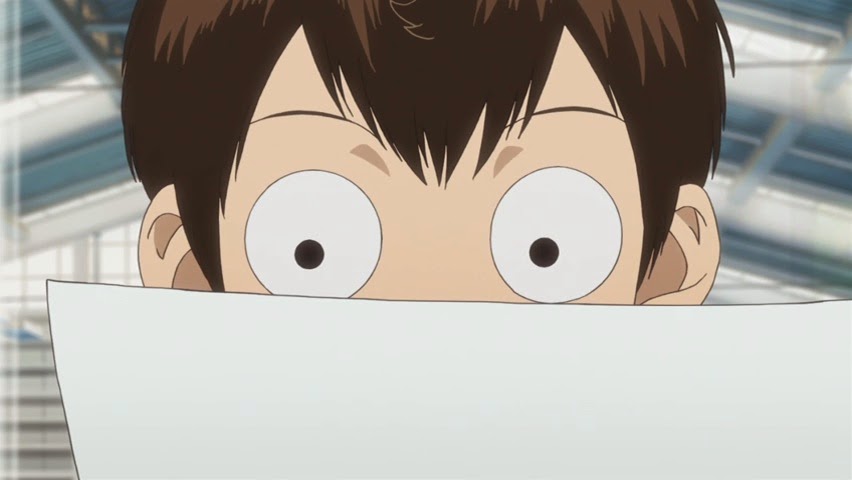
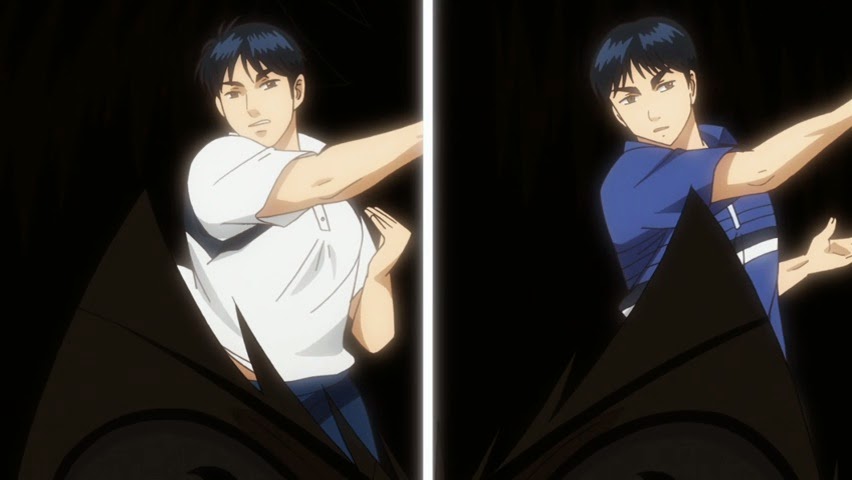
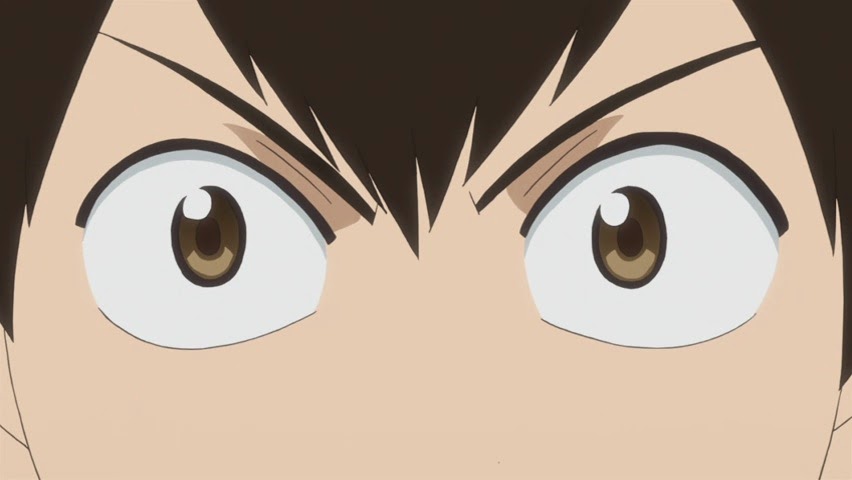

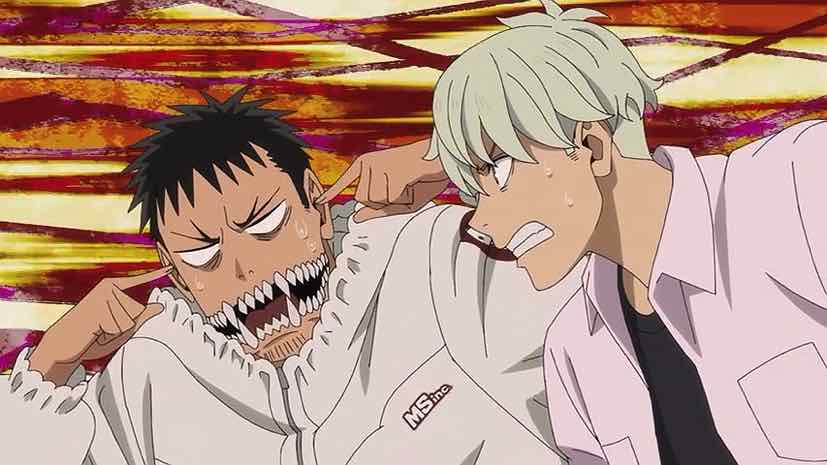
currycurry
August 25, 2014 at 12:42 amThe little tidbits of Ide and Okada are indeed exquisite torture. But Ide-kun — and the as yet unseen Moe-kun (as I like to call him) — is my favorite besides the main three, so even scraps are like catching sight of a rare bird before it flies away.